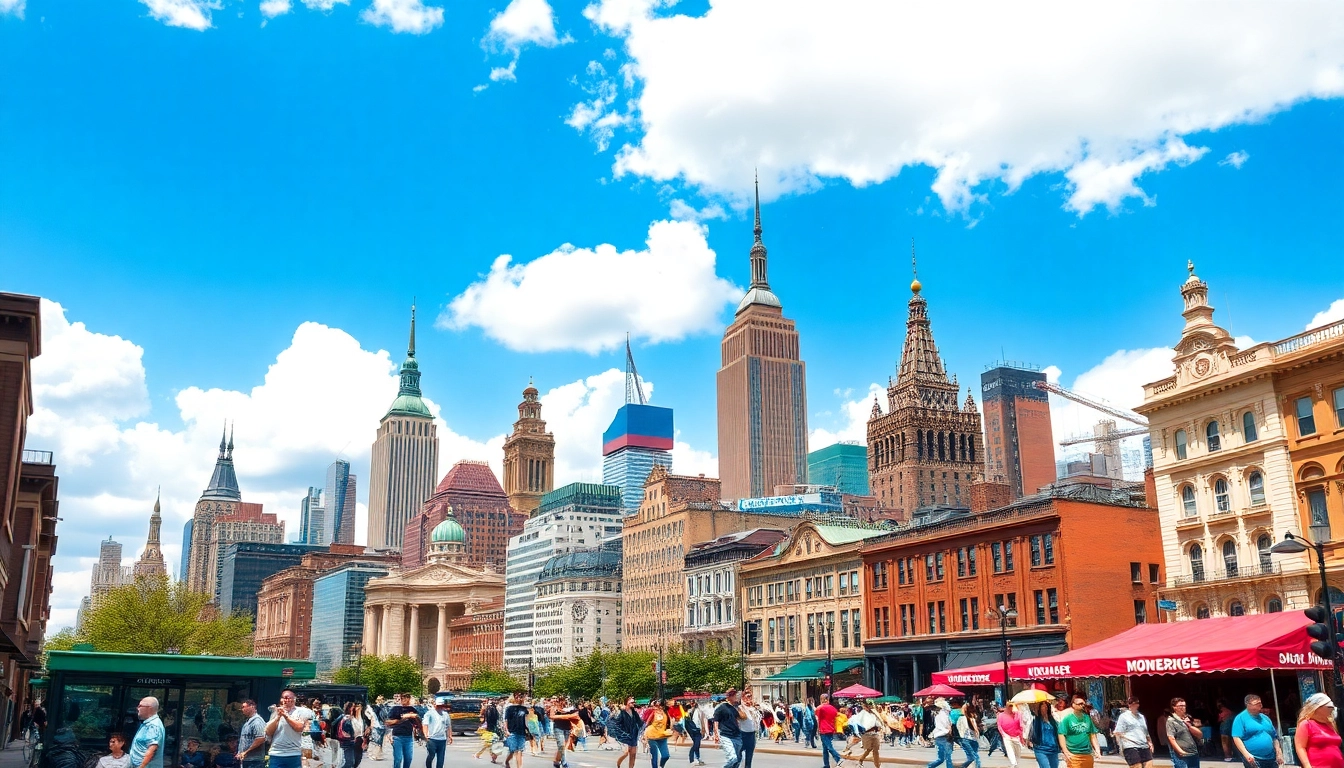Introduction to City Names
City names are more than mere labels; they carry a wealth of history, culture, and significance. They are the first impression one gets of a place, often evoking images, emotions, and expectations. Understanding city names requires diving into their origins, cultural contexts, and the psychological impact they hold on perception and branding. This article will explore the intricate world of city names, unveiling their historical contexts, cultural significance, and their evolving role in modern society.
What Are City Names?
City names are designated identifiers for urban areas and communities, serving as unique identifiers for geographical and administrative purposes. They encompass a variety of elements, including linguistic roots, cultural etymology, and historical references. Each name reflects the identity and characteristics of the place, often deriving from local languages, historical figures, or significant events. City names can be simple or complex, capturing the essence of the area they represent.
The Importance of City Names
The significance of city names extends beyond identification. They carry connotations that can affect how a place is perceived. For instance, names that derive from words meaning “peace” or “prosperity” might evoke positive feelings among residents and visitors alike. Conversely, names with negative connotations can impact tourism and local pride. In a globalized world, city names play a crucial role in branding and identity formation, influencing everything from economic opportunities to the cultural narratives associated with a place.
How City Names Influence Perception
City names can shape perceptions of a location dramatically. Psychological studies suggest that the way a person perceives a city can be influenced by its name. For example, cities like Paris are often associated with romance and elegance, while names like Detroit might evoke images of industrial decline. The phonetics of a name—its sounds and syllables—also influence perceptions; softer-sounding names tend to be associated with gentleness and calm, while harsher-sounding names may be linked to intensity or chaos. Thus, city names can play an essential role in shaping attitudes and behaviors towards a place, impacting tourism, real estate, and community engagement.
Historical Context of City Names
To fully appreciate city names, it’s imperative to look at their historical context. Many names come from a rich tapestry of linguistic developments, historical events, and changes in cultural perception, showcasing the evolution of human settlements over time.
Origins and Etymology of Notable City Names
The origins of city names can often be traced back to ancient languages. For example, the name “Rome” is thought to derive from the Latin word “Roma,” whose etymology is debated but may connect to a mythological figure named Romulus. Another example is “London,” derived from the Celtic “Londinium,” which illustrates the deep historical roots of urban naming conventions. Through unpacking such names, we not only gain insight into linguistic evolution but also learn about the pivotal historical narratives that shaped these locations.
Cultural Significance Attached to City Names
Cultural narratives are interwoven with city names, serving as storytelling devices that convey the histories of people and places. For instance, names such as “Mumbai,” derived from the name of the goddess Mumbā, reflect the spiritual significance attached to the location for its inhabitants. Cultural festivals, local legends, and even architectural styles often connect back to the stories encapsulated in the names themselves. This cultural significance enriches the identity of the city and reinforces the connection between people and their home.”
Changing Names: Historical Events Impacting City Names
Throughout history, city names have often been changed due to political shifts, colonial influence, and independence movements. A prominent example is the renaming of “Constantinople” to “Istanbul,” which reflected the city’s transition from the Byzantine Empire to Ottoman rule. Changes like these can symbolize profound historical transformations, reflecting shifts in power dynamics, cultural identities, and national pride. Renaming cities can thus serve as a form of social reparation, aiming to restore pride and authenticity to local identities.
Exploring City Names Around the World
City names around the globe showcase an astonishing diversity born from a tapestry of languages, cultures, and histories. Each name tells a story, reflecting the unique characteristics of its environment, the people inhabiting it, and the historical contexts surrounding it.
Diverse Cultural Influences in City Names
City names reveal the cultural tapestry from which they originate, often embodying the influences of indigenous populations, colonizers, and immigrants. For instance, “Mexico City” derives its name from the Nahuatl language of the Aztecs as “Mexihco,” demonstrating the lingering impact of indigenous civilizations. Similarly, “New Orleans” showcases French influence, named to honor the Duke of Orleans. The intermingling of languages and cultures is evident in many metropolitan areas, highlighting the narratives of conquest, settlement, and cultural synthesis.
Famous City Names and Their Unique Features
Certain city names have become iconic, often synonymous with particular characteristics or cultural phenomena. Take “Las Vegas,” for example, which evokes immediate associations with extravagance, entertainment, and leisure culture. Then there’s “Venice,” a name that conjures images of canals, gondolas, and architectural beauty—further enriched by its history as a trade hub. These places have become brands in their own right, drawing tourists and investors while shaping the expectations and experiences of visitors.
Rare and Uncommon City Names
While many city names are well-known, others remain relatively obscure yet intriguing. Examples include “Dijon,” known for its mustard and rich history, and “Timbuktu,” often perceived as a symbol of remote exoticism. Names like these capture the imagination and highlight the broader landscape of urban naming conventions. They also often reveal more about geographical and cultural extremes, provoking curiosity and implying narratives waiting to be uncovered.
The Role of City Names in Branding and Marketing
City names serve as essential tools in branding and marketing, shaping perceptions and creating narratives that significantly impact businesses and tourism. Understanding the dynamics between city names and branding is crucial for leveraging identity, both for cities themselves and for businesses operating within them.
Utilizing City Names for Business Strategies
Businesses often harness the strengths of city names to create branding strategies. For instance, companies based in “Silicon Valley” benefit immensely from its association with innovation and technology. The geographic name itself becomes a powerful marketing tool that can attract talent, investors, and customers. Businesses that align themselves with the identity constructed by their city’s name can boost brand recognition and credibility, helping them stand out in competitive markets.
City Names in Tourism and Travel Industry
City names play an integral role in tourism, functioning as the initial hook for attracting visitors. Destinations that evoke positive associations or are linked to popular cultures—such as “Barcelona” or “Tokyo”—benefit from their names’ inherent allure. The tourism industry often relies on these associations for promotional campaigns, developing narratives that invite exploration and engagement. Consequently, a city’s name becomes instrumental in shaping travelers’ choices and experiences.
The Impact of City Names on Digital Marketing
In today’s digital landscape, city names hold significant weight in search engine optimization (SEO) strategies. Businesses and destinations need to optimize their online presence for local searches through appropriate use of geography-based keywords. Incorporating city names effectively into digital content can improve search rankings and visibility, ensuring that potential customers can easily find relevant offerings. As more people turn to the internet for travel ideas, content production must reflect the cultural and emotional attachments tied to city names to resonate with audiences.
Future Trends in the Usage of City Names
City names continue to evolve as cultures, technologies, and geopolitical landscapes change. The progression of city names reflects shifting priorities, emerging societal voices, and technological advancements.
The Evolution of City Names in Modern Context
Modern naming conventions are shifting towards inclusivity and representational accuracy. Cities around the world are reconsidering names that evoke colonial or oppressive histories. Recent movements advocate for renaming cities to reflect local heritage, such as “Lagos,” which is often referred to by its indigenous name “Eko” by local populations. This trend emphasizes a commitment to recognizing and preserving cultural heritage within urban naming structures.
Emerging City Names and Their Potential
As urbanization continues to expand, new cities and areas are being created, giving birth to new city names. Cities like “Naypyidaw” in Myanmar exemplify the shift towards contemporary naming that reflects national pride and aspirations. Emerging city names often come with the potential for future significance, as they position themselves strategically for economic development and cultural branding within increasingly interconnected global systems.
The Role of Technology in Renaming Cities
Technology plays a transformative role in understanding and potentially renaming cities. Through data analysis and social engagement platforms, communities can voice their desires for renaming, reflecting a more democratic approach to city identity. Moreover, augmented reality and virtual mapping technologies could reshape how we interact with city names, serving as platforms that highlight public input and collaborative naming practices.



